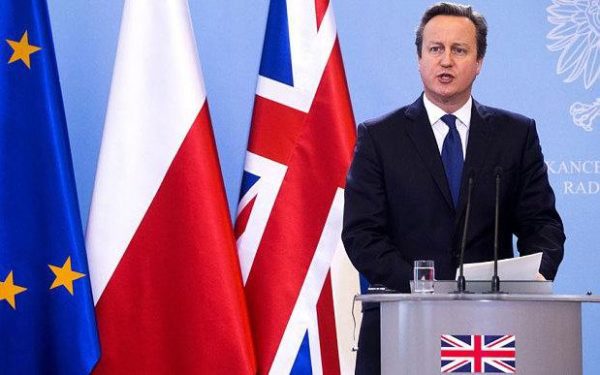Global Issues
UK Brexit Vote As Biggest Political Misjudgement In Recent History -By Oliver Owen


So the UK has voted to leave the EU in a 52 percent to 48 percent call for ‘Brexit’. The turnout was a very high 72 percent or 33.6 million voters, with the majority of young voters ‘In’ and most of the old voting ‘Out’. The result was welcomed by US Republican hopeful Donald Trump as he arrived in Scotland, which only proves what an incredibly bad development the Brexit vote actually is.
In regions of the UK which voted strongly for Brexit, core supporters are celebrating a victory they never expected as if a liberation war has been won, mixed with a sense of trepidation from those who took the ‘Leave’ option as a protest vote they thought they’d never see implemented. Meanwhile, shocked voters in strong ‘Remain’ areas like the town in which I write this are meeting up to commiserate in a mass sense of sorrow and need for togetherness which I have not seen since the London tube bombings.
The reason this happened can be summed up in one word: Alienation. A quick look at the voting patterns on a map shows how the Remain camp got a huge vote in parts of the country which are well-connected to the global and European economy such as the Thames Valley and areas south of London, cosmopolitan large cities especially London, and especially those places with youthful and educated populations including university towns like Oxford and Cambridge. However it was dwarfed by the huge swathes of small and medium-sized towns and rural areas where people who have suffered economic stagnation, social degradation and unmet aspiration saw the vote as an historic chance to defy the establishment on its own terms. This piece explains further. Places like Lincolnshire and the north-east, which have barely figured on the national map in recent years, have now decided the future of the country, and it is the turn of the rest of us to feel alienated.
The Brexit vote is an indication of how two-speed the UK has become, with fears and social anxiety further stoked by a global refugee crisis which, of course in reality, is not caused in any way by the EU but which has been associated with it by populist right-wingers like Nigel Farage of UKIP. Nothing should sum this up more than the simple scene my sister in the pro-Brexit East Midlands met this morning – cleaners at the local swimming pool joyful while receptionist and some customers were in tears. For large swathes of the population, this is a subaltern insurgency, tragically misdirected at the only target available; everyone’s own best national interest.
There were other things at play too, even sometimes considered opinions; also longstanding sentiments of British exceptionalism, and unpleasant recurring nativism, but the poll was lost by fewer votes than were undecided at the outset, so clearly it could have been won. That means someone took some very bad decisions.
Blame
The huge proportion of the blame for this debacle should be laid at the door of David Cameron. By calling and then losing a referendum he never needed to have, Cameron has acted like a man who digs a big hole and then reverses his own car into it. It is hard to think of any single more stupid move in the last hundred years of British politics. By promising this vote in order to see off a UKIP threat to the Conservative vote and party cohesion at last year’s General Election, he cynically put the interest of his political party before the interest of the country, and got it completely wrong so that everyone will suffer. That includes the Tories themselves who will now be split again. His irresponsibility in doing so has been breathtaking and sickening. But the ground had long been prepared by his own and other peers’ habit of using Brussels as a scapegoat, rather than making a case for what we gain by being in.
Some of the blame should also go to Labour leader Jeremy Corbyn. The In campaign was relying on the opposition party’s electoral machine to mobilise the vote, and in many areas it did so, but was not helped by too little support, too late, coming from party HQ. Fundraising, campaigning and bold targeted public messaging were notably missing until the last days. Most of all, Corbyn’s own lukewarm personal support for the EU hardly helped, putting his personal reservations ahead of the party’s majority position, and was a gift to the Leave camp.
The In campaign was a missed opportunity in many respects, in which energetic and dedicated activists were given poor material with which to work. There was no real attempt to make it a patriotic issue to be ‘In’; and campaigning at the top level was in the main negative and based on economic risk rather than hope and aspiration. In the end, simple messaging trumped complex issues, hope trumped threats, and a sense of empowerment trumped perceived elitism. Except that unlike Obama’s election in which the same elements were present, this is not going to deliver anything positive. Or in fact, anything at all, as the ‘Leave’ camp were completely unencumbered by any realistic suggestion of what policies post-Brexit Britain would need to pursue.
Economic Effects
The announcement was met by a crash of the pound to a 30-year low in the currency markets, immediately causing the UK’s economy to fall behind France as the world’s fifth-largest, and not only UK but also other European stock markets have fallen. A London fund manager friend described financial stocks as ‘killed’ and related widespread concerns over whether European clients would choose to keep on dealing with London brokers.
The Bank of England Governor Mark Carney gave reassurances about liquidity and said the UK is ready for a ‘new economy’ but small businesses, who had been told by Leave campaigners that Brussels regulation was impeding them, have already felt the pinch. One design company exporting to Europe told me this morning that all of their continental clients have instantly paid all outstanding invoices, rushing to take advantage of the weak pound and thus costing the recent startup significant losses.
The worst risk to the UK economy in the short term would be an ensuing period of sustained instability, which would lead to speculation and wild fluctuations on the currency, and thus wipe out any of the possible marginal boost to exports which might have come from a more predictable longer dip in the pound. Unfortunately, the long instability is what we are going to get, at the very least up to and after negotiations begin in October.
Political Fallouts
David Cameron will be seen by history as an extraordinary figure – a man who went from riding the wave of an election he never expected to win outright, to resigning because of a referendum he chose to hold and never expected to lose, within just one year. All his other work will be overshadowed by a legacy as the PM who divorced from the EU and probably who also broke up the United Kingdom (see below).
However, it is less clear who will replace him. Ambitious Chancellor of the Exchequer George Osborne is already not popular on a personal level and now is hugely damaged by his loud cheerleading and percieved scaremongering for Remain. All the leaders of the Leave camp are much better-placed to take over. The most intellectual of them, Michael Gove, is not publicly likeable, so recent London Mayor Boris Johnson remains the most high-profile. In fact many commentators, including his own father, opine that he only chose the ‘Leave’ camp as a gamble to become Prime Minister, an aspiration rooted in personal rivalries with Cameron with whom he has associated since student days, and which marks him out as both much clever and much more irresponsible than many of us had realised.
But Boris is extremely divisive, a love-or-hate figure with none of Cameron’s appeal to those who like their politicians to appear reasonable. His populist buffoonery fools fewer people after two terms in public life, and in the city he ruled, which voted overwhelmingly to Remain, he is a figure of hate for many, as this footage of this morning’s open hostility outside his house shows. Perhaps the best compromise candidate may be someone like Home Secretary Teresa May, who campaigned for Remain but more quietly, and has respect across the party – but that would only work if there is still room for a cross-party candidate; the UK’s ruling party may be too deeply divided even for that.
As a result of the UK system, whoever does win will inherit a government with four years left to run before they need to face the public in a general election; but to reinforce their position, they may well wish to have one much before that. And the Conservative party remains a minority party by vote share, even though it wins most seats in the first-past-the-post-system. So a general election would throw all the cards up in the air.
The question then is would the Labour party be in a position to capitalise on the feeling of alienation and change and offer an alternative vision which is convincing enough to divert a new current of populist nationalism? Many doubt that the current leader, a liberal London MP, would be able to connect to disaffected northern working-class communities nor to aspirational middle-England well enough to win a national election. Even clearer today is that Corbyn really is no tactician, hence today’s call for a no-confidence vote in his leadership.
Scotland, which voted overwhelmingly to stay in Europe in all areas of the country, will now look once more at whether it wants to be tied to an English vote to leave. It also has a unique window of opportunity to make the decision. If Brussels signals willingness, any time during the two-year Brexit period, Scotland could leave the UK and stay in the EU on the advantageous terms the UK government currently has, with a range of exceptions from the rules. If it waits until the UK goes out and then reapplies, it has to accept all conditions for new entrants, including the damaged Euro currency and the controversial Schengen free movement agreement. So it has every incentive to go sooner rather than later – yesterday’s Brexit vote has thus already hastened the likely breakup of the United Kingdom in its current form.
Wales, which voted strongly to Leave did it for the same reason as other marginalised post-industrial areas, voting directly against its own best economic interests. Areas such as former mining communities of South Wales have received huge European grants for reconstruction investment over the past twenty years, but rather than connect that, they opted instead to vent resentment at their continued decline and disempowerment. In fact, an activist from Swansea, one of Wales’ largest cities, told me that some Labour leaders there had actively avoided campaigning for the EU in order not to be connected with its unpopularity.
Northern Ireland and all regions of the UK had expressed most fears about Brexit due to the way its own fragile peace rests on free movement to the EU-member Republic across the border. The region as a whole voted Remain while strongly Unionist areas voted leave. In the long-term, Northern Ireland is not likely to push for more devolution than it already has, in order to remain in the EU, if it can secure a deal on free movement to the republic during Brexit negotiations.
Four Lasting Changes
There are four things which have changed in the landscape of UK public life as a result of the campaign, and would have changed whatever the vote. First is that it has revealed the UK as a society as painfully divided against itself as the US Presidential campaign has shown America to be.
Secondly, it has legitimised dissembling and outright lies as fair political tools. Media outlets like the Daily Mail and Express have whipped up a frenzy against supposed immigration abuses which in reality represent only a small portion of cases, while even on national TV, Leave campaigners had told outright lies – in the main televised debate this week, Tory Leave MP Andrea Leadsom claimed that 60 percent of UK laws are now made in the EU. That’s not even remotely true – the figure is 13 percent – but it resonates with those who want to believe the worst.
In using this kind of dishonesty, the Leave campaign has also fed a deep mistrust of previously respected institutions and their expertise, with conspiracy theories replacing thoughtful consideration of the opinions of such institutions as the Bank of England – though another question is whether this is more an effect or a cause of the Brexit debate. Conspiracy theories certainly do influence the kind of mentally unstable person who killed MP Jo Cox last week, reportedly shouting ‘Britain first’ as he shot and stabbed the mother of two to death in her Yorkshire office.
And fourthly – it has legitimised public expressions of racism. Although the official Leave campaign distanced itself from the more radical UKIP’s campaign, there is no doubt its vote share benefitted from UKIP’s campaigning, which included such controversial images as this – which possibly contravenes laws on racial hatred.
Effects on Africa
Nothing will immediately change in any legal or political sense with regards to bilateral relations between Nigeria and the UK, at least from the UK end. But in the medium-term, some changes are possible. First, the EU will consider how to place its development funding without the UK arguing the case for countries with which it has a special historic relationship. Secondly, while Leave-ists argue that Commonwealth immigration and trade could replace EU links, it remains to be seen whether there is any real commitment or capacity to do that. Thirdly, as David Cameron was the main defender of the Conservative promise to spend 0.7 percent of GDP on development aid, his departure may well signal the end of that, and therefore less aid funding. If the UK economy takes a crash, it might also be forced to take whatever investment terms the global market offers, making it even less likely to deliver on promises to curb inflows of laundered money. And despite all the promises from Leavers about not being against immigrants per se, this decision can hardly be expected to make the UK more open and tolerant. It is hard to imagine someone who feels intimidated and confused by hearing Bulgarian spoken on the bus being favourably disposed to hearing Yoruba or Hausa.
So What Next?
The first item on the agenda is the terms of leaving the union. Rather than risk a vote on the domestic Act by which we are incorporated, which would risk MPs (who are majority In on all major parties) revolting, Cameron has announced his intention to trigger the EU’s Article 50 process which provides a two-year path to automatic ejection, beginning when he steps down in October. That’s if he’s allowed to. European leaders have already pressed for a quicker break, wary of the contagion effects of instability, but he has no motive to accede to that. In the coming months and year, all of the skills of the UK’s dedicated civil servants will be needed to craft a solution which gives the British people what they need, rather than the inchoate and emotive situation they have demanded. Perhaps it will even be good if the period before negotiations begin will be as economically damaging as possible to the UK; at least that way whoever ends up leading the retreat will already be warned to tread carefully.
Olly Owen is research fellow at Oxford University Department of International Development. Views are his own. Twitter @mrollyowen



















